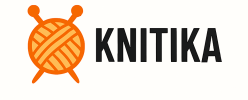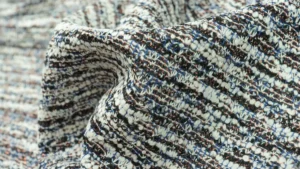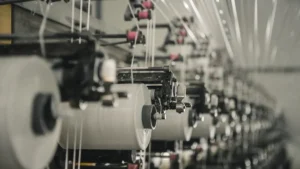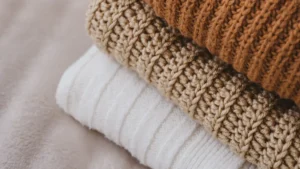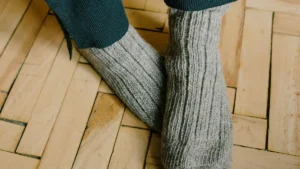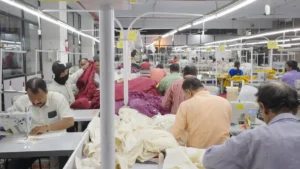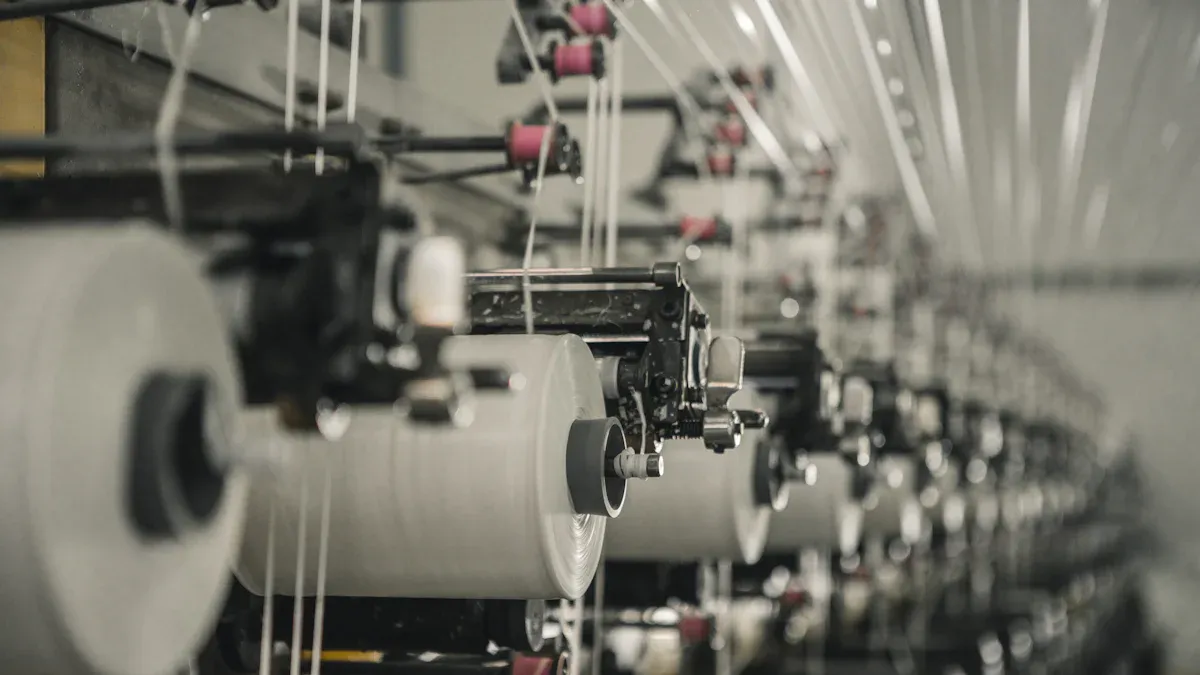
When you want to find reliable knitwear suppliers, look for these main certifications in 2025:
Global Organic Textile Standard (GOTS)
OEKO-TEX Standard 100
Global Recycled Standard (GRS)
Responsible Wool Standard (RWS)
Certifications show that reliable knitwear suppliers maintain good quality. They also help the environment and treat workers well. You can use these certificates to ensure a supplier is safe and fair for your needs.
Key Takeaways
Check for important certifications like GOTS and OEKO-TEX when picking knitwear suppliers. These certifications make sure products are safe and good quality.
Certifications help protect nature and treat workers fairly. They help you choose the right supplier.
Always ask to see certification papers to check what a supplier says. This helps you spot fake green claims.
Sustainable certifications mean suppliers care about people and the earth. They help customers trust the supplier.
Keep learning about new certification rules and trends. This makes sure your knitwear is good and follows the latest rules.
Reliable Knitwear Suppliers: Certifications
Certifications help you pick reliable knitwear suppliers. These rules show suppliers care about quality and safety. They also care about making products the right way. Certified textile products protect your business. They support good and fair practices. You make sure your knitwear is healthy and meets world standards.
Global Organic Textile Standard (GOTS)
You should check for the global organic textile standard when buying knitwear. This certification looks at every step in making textiles. GOTS makes suppliers use organic fibers. They must follow strict rules for nature and people. Farmers sign up in the GOTS Farm-Gin registry first. All materials must be traced back to the farm group. The certification body checks for GMOs and pesticides. Audits can happen without warning in risky places. The global organic textile standard limits how far cotton travels. This protects weak points. GOTS-certified products use a strong complaint system. They act fast if rules are broken. This standard helps stop fraud and keeps things organic.
Tip: Always ask for the GOTS transaction certificate. It shows where the material goes from farm to finished textile.
OEKO-TEX Standard 100
The oeko-tex standard 100 is another key certification for reliable knitwear suppliers. This standard tests finished textiles for dangerous substances. You can feel safe with oeko-certified items. They do not have harmful chemicals. Oeko-tex checks that suppliers get materials the right way. When you see the oeko label, you know safety rules are followed. Oeko-tex certified products protect your health and the planet. Always look for this certification for safe and good knitwear.
Certification | Criteria Covered |
|---|---|
OEKO-TEX | Tests for dangerous substances in finished products. |
GOTS | Organic fiber, nature and people rules, all steps, third-party checks. |
RWS | Animal care, land health, worker safety, checks at all steps. |
ISO 9001 Certification
ISO 9001 is a world standard for quality management in textiles. This certification helps reliable knitwear suppliers make customers happy. ISO 9001 certified suppliers use eight main quality ideas. These ideas include risk control, always improving, and clear talking. You can trust ISO 9001 certified suppliers for steady quality. This standard helps you feel sure about what you buy. Picking ISO 9001 certified suppliers means you support better business ways.
Global Recycled Standard (GRS)
The global recycled standard matters for making textiles in a green way. GRS certified products must have at least 20% recycled stuff. Suppliers must track materials through every step. The global recycled standard limits some chemicals. It asks for following nature rules. Suppliers must also follow rules about workers’ rights. You can use the global recycled standard to find knitwear that helps recycling and good making.
Requirement Type | Details |
|---|---|
Minimum Recycled Content | Products need at least 20% recycled stuff for GRS certification. |
Traceability | Tracking materials through every step is needed. |
Chemical Restrictions | Some chemicals cannot be used in making products. |
Environmental Compliance | Must follow rules for water, waste, and air pollution. |
Social Criteria | Must follow rules for workers’ rights. |
Note: GRS certified textile products help you protect nature and support fair work.
Most Recognized Certifications for Knitwear Suppliers in 2025
Focus on these certifications when picking reliable knitwear suppliers:
BLUESIGN: Looks at green practices.
These rules help you find certified textile products that meet world needs for safety, quality, and green ways.
OEKO-TEX: Makes sure products do not have bad substances.
GOTS: Uses organic materials and fair rules in every step.
RWS: Cares for animals and uses green ways in wool making.
You can use these certifications to make smart choices and support good textile making.
Sustainable Certifications
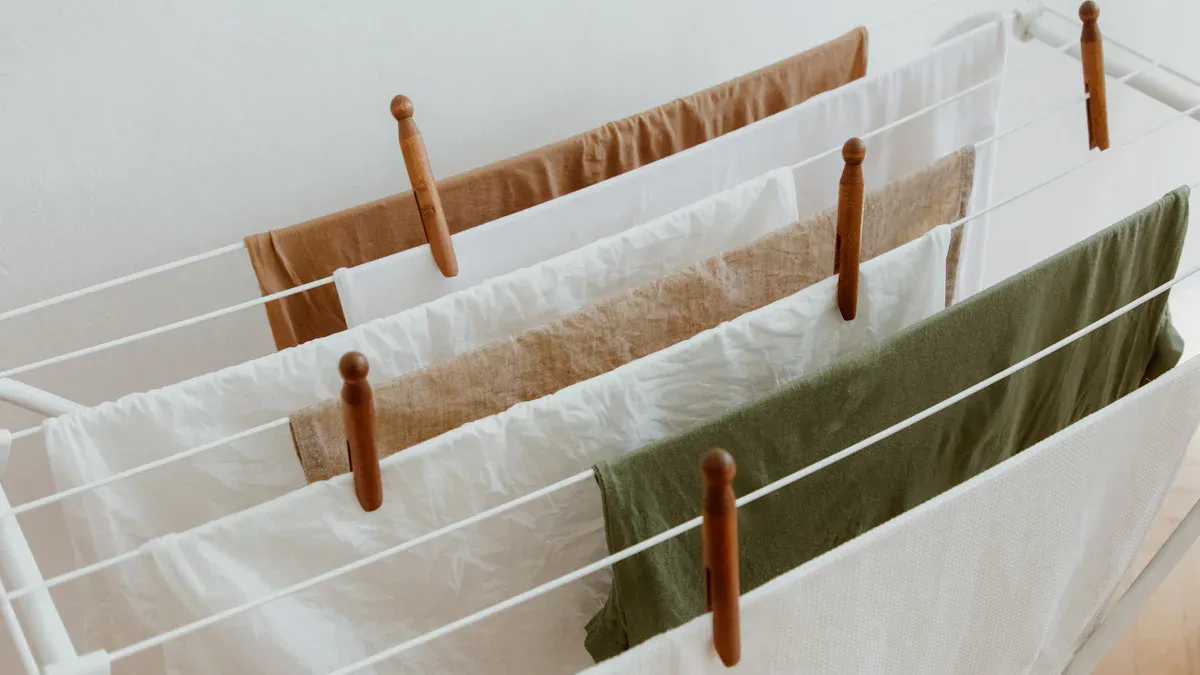
Sustainable certifications help you pick knitwear suppliers who care. These certifications make sure products are good for people and the planet. Certified suppliers use safe materials and treat workers well. They also protect nature. Many shoppers want clothes that are good for the earth. Brands now choose certified textile products to meet this need. Companies like Patagonia and Allbirds use sustainable materials. H&M has programs to recycle and reuse old clothes. When you choose certified suppliers, you help the world and earn trust from customers.
More people want clothes made in eco-friendly ways.
Sustainable certifications show companies are honest and careful.
Certifications help brands earn trust and keep loyal customers.
Patagonia and Allbirds use materials that are better for nature.
H&M collects old clothes to recycle and reuse them.
Certifications like fair trade and GOTS show brands care about doing the right thing.
Bluesign
Bluesign certification checks if suppliers follow tough nature rules. You can see how much water, energy, and chemicals they use. Bluesign certified suppliers must handle waste and keep workers safe. This certification looks at every step of making textiles. When you see the Bluesign label, you know products are safe for people and the earth.
Criteria Type | Specific Aspects Evaluated |
|---|---|
Water Usage | Checks how much water is used and if it gets better. |
Energy Consumption | Looks at how much energy is used to make products. |
Chemical Usage | Makes sure only approved chemicals are used. |
Waste Management | Checks how waste is handled and if it is recycled. |
Social Conditions | Looks at worker safety and health at work. |
Emissions | Checks air and water pollution and greenhouse gases. |
Resource Consumption | Looks at how well resources are used and recycled. |
Bluesign certified products meet high nature standards. They help you support fashion that is good for the planet.
SA8000
SA8000 certification makes sure textile workers are treated fairly. You can trust SA8000 certified suppliers to follow good labor rules. This standard covers many important things:
No child labor is allowed.
No forced labor is allowed.
Workers must be safe and healthy.
Workers can join groups and speak up.
No one is treated unfairly.
Discipline must be fair.
Working hours must be reasonable.
Workers must get fair pay.
There must be a strong management system.
Choosing SA8000 certified suppliers means you support fair workplaces. This certification helps you meet nature and social goals.
Fair Trade Certification
Fair trade certification makes sure textile workers are treated well. It helps workers and their communities live better lives.
Aspect | Description |
|---|---|
Decent livelihoods | Workers get fair pay and work normal hours. |
Empowerment | Workers choose how to use extra money for their community. |
Gender equality | No one is treated unfairly because of gender. |
Health and safety | Workplaces must be safe and workers must have gear. |
Buying fairtrade textile products helps make good changes. The fairtrade textile standard supports safe work and strong communities. Certified products show you care about nature and people. You can trust the fairtrade textile standard to help you make better choices in textiles.
Animal Welfare & Traceability
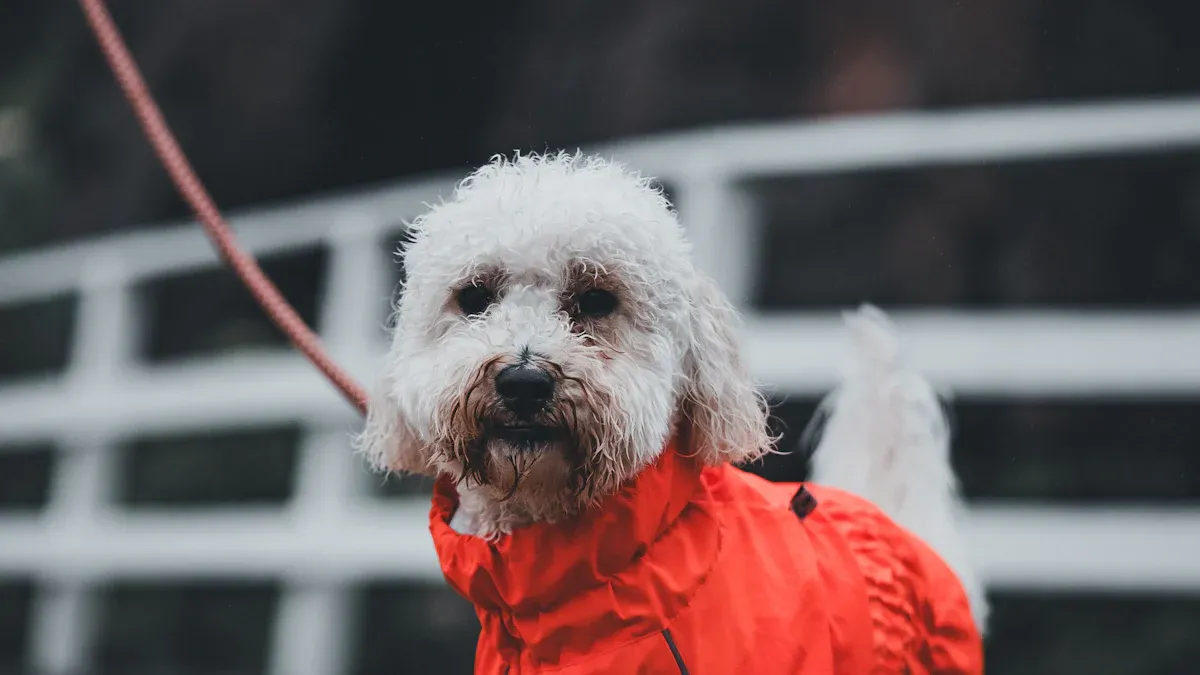
You want your textile products to come from places that treat animals kindly. You also want to know where your products come from. Certified textile suppliers use special certifications to show they care about animals and keep things clear. These certifications help you trust your knitwear is made the right way.
Responsible Wool Standard (RWS)
The Responsible Wool Standard is a trusted certification for animal care. RWS certified wool comes from farms that protect sheep and land. This certification uses the Five Freedoms to make sure sheep live well:
Freedom from hunger and thirst
Freedom from discomfort
Freedom to act normally
Freedom from pain and sickness
Freedom from fear and stress
RWS does not allow mulesing. It checks that farms use good land practices. In 2025, about 85% of certified wool is RWS certified. Only 4.8% of all wool is certified. Most wool is not certified yet. Always look for the RWS label on your textile products.
Certification Name | Key Features |
|---|---|
Responsible Wool Standard | Focuses on animal care, land health, and fair work. No mulesing allowed. |
NATIVA | Cares about animal welfare and green practices. |
ZQ | Treats sheep well and protects nature. |
SustainaWOOL | Makes sure wool comes from good sources and animals are cared for. |
PETA-Approved Vegan
If you want textiles with no animal parts, look for the PETA-Approved Vegan label. This certification means the textile is 100% animal-free. You help brands make better choices and support cruelty-free products. Many certified b corporations use this label to show they care about ethics.
Sedex
Sedex certified suppliers let you see every step in the supply chain. Sedex uses outside checks for safe work and nature rules. You can use the Sedex database to check if a supplier is certified. This helps you avoid fake reports and keeps things clear.
Certification | Contribution to Supply Chain Transparency |
|---|---|
BSCI | Makes sure suppliers follow fair labor rules and rights. |
SEDEX | Helps brands watch their suppliers and keep sourcing honest. |
BSCI
BSCI certified suppliers follow strict rules for fair trade and worker rights. BSCI audits help you check for good work and open supply chains. Many certified b corporations and better cotton initiative members use BSCI to prove their supply chain is fair. You can trust BSCI certified products to meet high standards for ethics.
Tip: Always check certifications using official databases or by contacting the audit group. This keeps your supply chain safe and supports ethical choices.
Emerging Certification Trends 2025
New Standards
There are new rules for textiles in 2025. The Materials Matter Standard mixes climate, nature, and social goals. This rule helps you see how certified materials are tracked. Brands use two types of rules to show their work. These new rules help you compare products. You can check which ones match your values.
The Materials Matter Standard makes supply chains clearer.
You learn more about certified materials and their effects.
Brands use easy rules to show they follow standards.
More products now have strong climate and social goals.
Certified suppliers use better tracking tools now. These tools let you follow materials from farm to finished item. You can trust certified knitwear to meet high standards.
Updated Requirements
Certification rules in 2025 fix new problems in textiles. The Life Cycle Assessment (LCA+) helps you compare fabrics. This rule adds land care, human rights, and animal care. Certified suppliers must use strict tracking systems like Trackit.
LCA+ helps you compare textiles with simple numbers.
Land care and better farming matter more in new rules.
Human rights and animal care are big parts of textile making.
Tracking tools like Trackit help you check supply chains.
Tip: Use Textile Exchange to learn about new rules. You can find guides, standards, and tracking tools online. You can look up supplier lists and ask questions about certified products.
Resource Name | What You Can Do With It |
|---|---|
Textile Exchange | Learn about certified standards and updates |
Standards Documents | Read certified requirements and changes |
Trackit Traceability Tool | Track certified textile supply chains |
Claims & Labeling Guidance | Understand certified labeling rules |
Get Certified | Find certified bodies for textile trade |
Certified suppliers must keep up with new rules. You can use these resources to make sure your knitwear meets the latest goals for fair trade and care for people and nature.
You need certified suppliers to make sure knitwear is good. Certified suppliers help keep things safe and clear. They must follow tough rules for certification and compliance. These certifications stop bad actions and help the planet.
Always ask for up-to-date certified papers and audit info. This helps you spot fake green claims and check the rules are followed.
Certification | Purpose | Importance |
|---|---|---|
Makes sure workers are treated fairly | Very important for following labor rules in strict places | |
GRS | Proves materials are eco-friendly | Needed for brands that care about nature and follow green rules |
Trusted knitwear suppliers use certified steps to follow the rules. You can count on certified products for following rules and knowing where things come from.
FAQ
What is the easiest way to check if a supplier’s certification is real?
Go to the certification’s official website. Type in the supplier’s certificate number. The website will show if the certificate is real and up-to-date.
Why do some suppliers have more than one certification?
Suppliers want to meet many rules. Each certification checks different things like safety or animal care. Having more certifications gives you stronger proof of good work.
How often do suppliers need to renew certifications?
Most certifications must be renewed every year. Auditors look at the supplier’s work before renewal. Always ask for the newest certificate.
Can a supplier lose their certification?
Yes, suppliers can lose certification. If they break the rules, the certificate can be taken away. Check for updates before you buy anything.
Do certifications increase the cost of knitwear?
Certifications can make knitwear cost a bit more. You pay for safer and better products. Many people think the extra cost is worth it.
